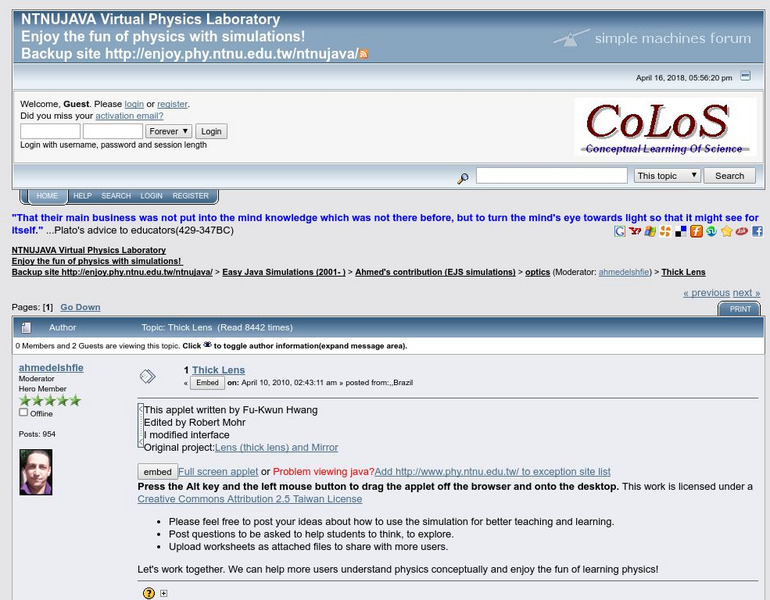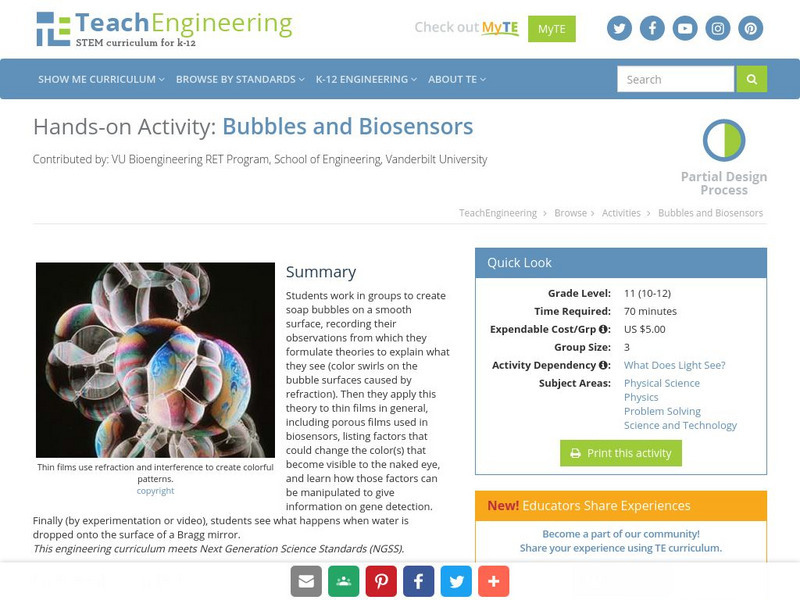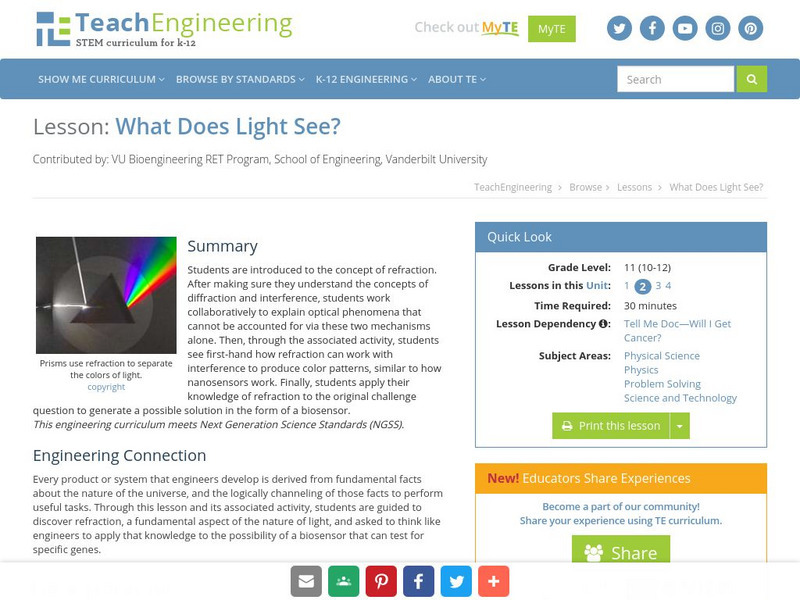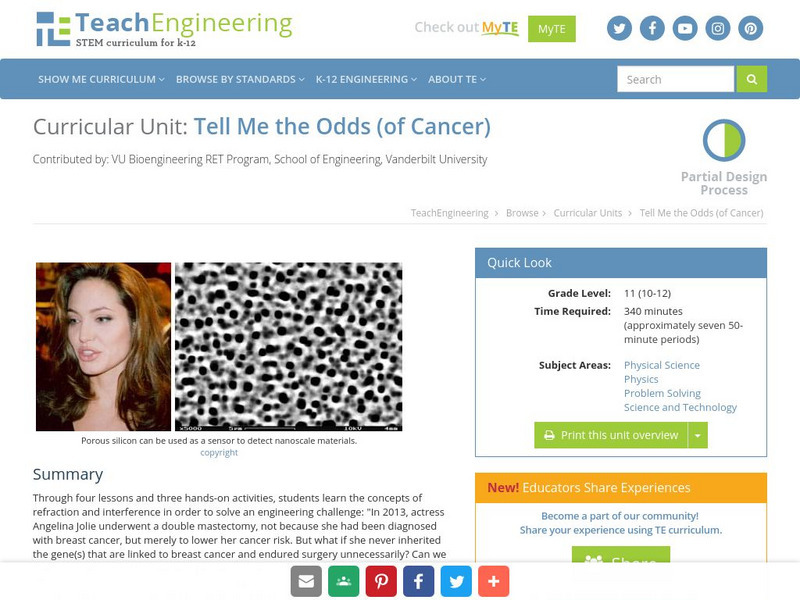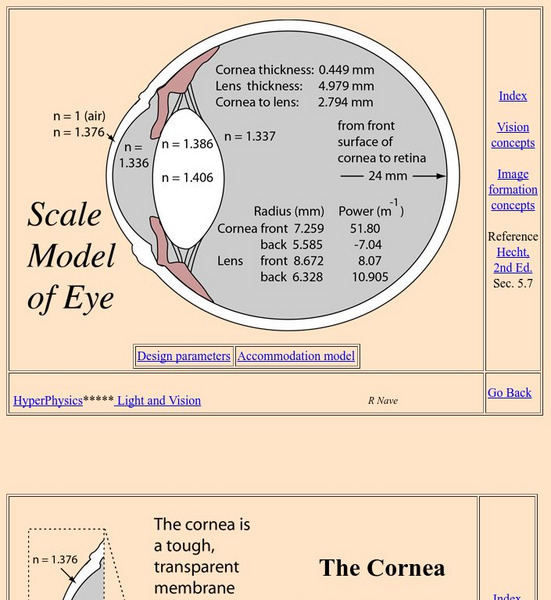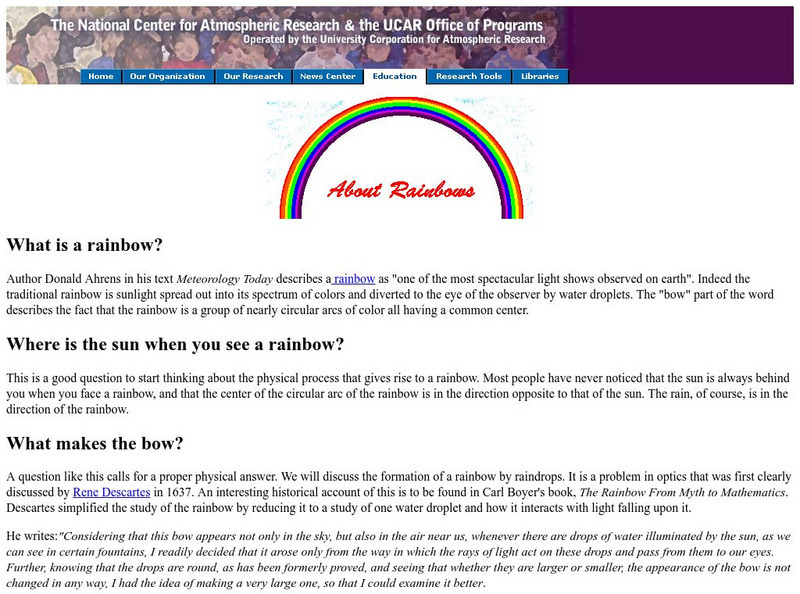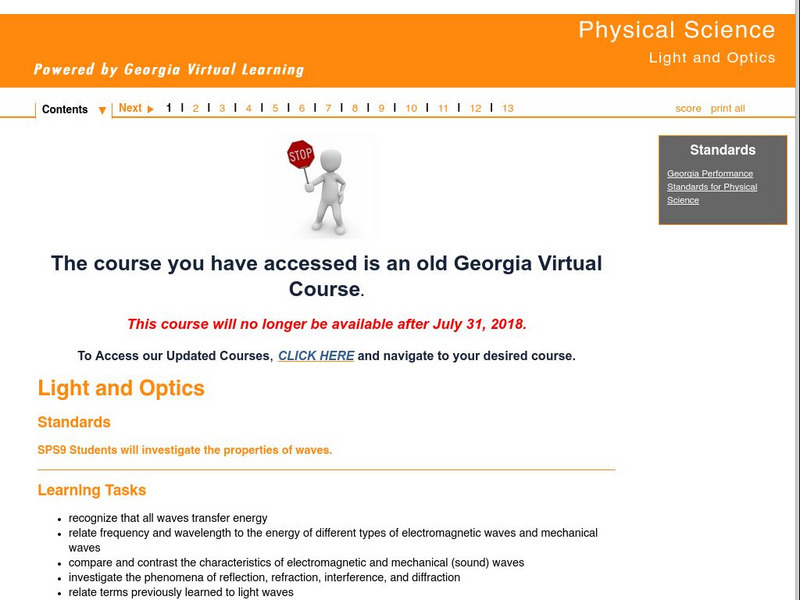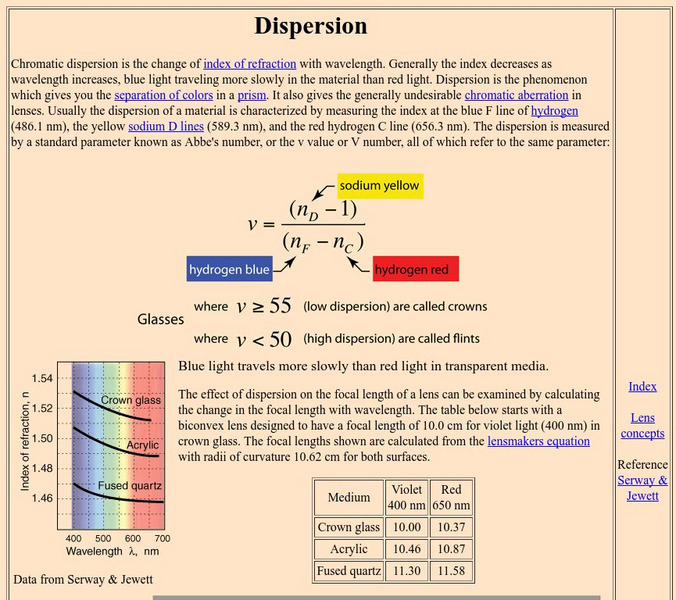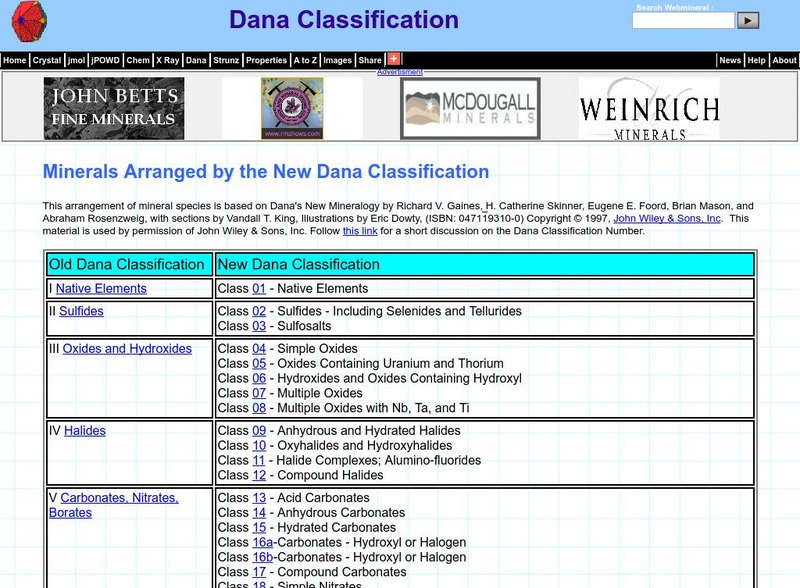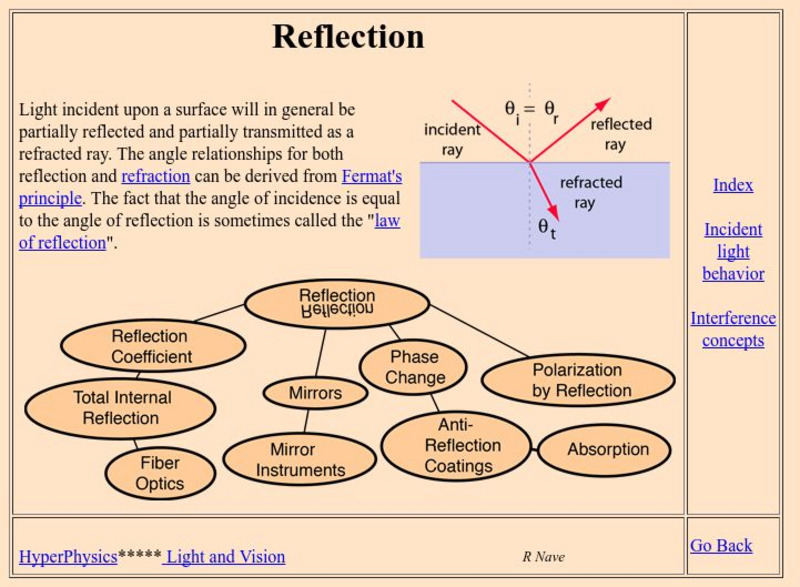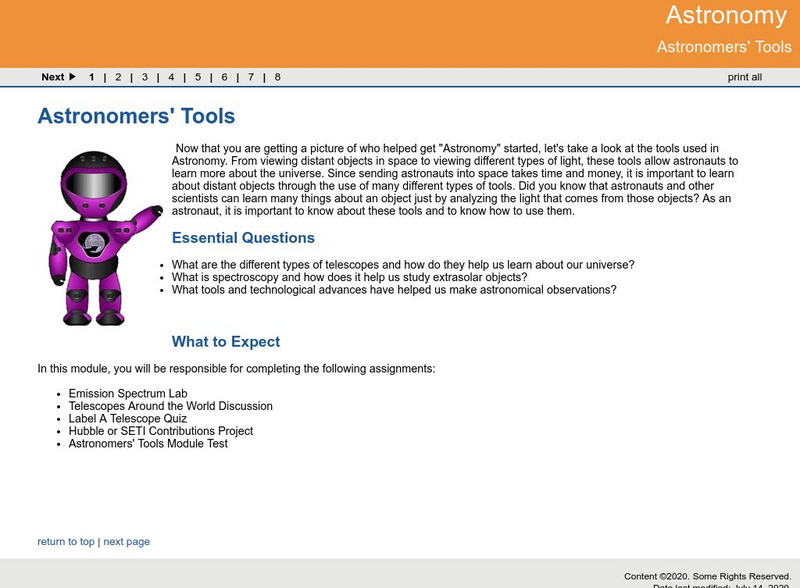Physics Aviary
Physics Aviary: Practice Problems: Index of Refraction Problem
Use the angle of incidence and the angle of refraction to determine the index of refraction for a material.
TeachEngineering
Teach Engineering: Quantifying Refraction
Students learn the relevant equations for refraction (index of refraction and Snell's law) and how to use them to predict the behavior of light waves in specified scenarios.
TeachEngineering
Teach Engineering: Make That Invisible! Refractive Index Matching
Students determine the refractive index of a liquid with a simple technique using a semi-circular hollow block. Then they predict the refractive index of a material (a Pyrex glass tube) by matching it with the known refractive index of a...
Other
Ntnu Virtual Physics Lab: Thick Lens Java Applet
An interactive Java applet which allows the user to investigate the path of light through a lens shape object. The shape of the object, the index of refraction of the material, and the location of the incident rays can be altered.
Khan Academy
Khan Academy: The Refraction of Light Through the Human Eye
This five-question quiz relating to refraction of light in the human eye.
TeachEngineering
Teach Engineering: Bubbles and Biosensors
Students learn that color swirls on the bubble surfaces are caused by refraction. Then they apply this theory to thin films in general, including porous films used in biosensors, listing factors that could change the color that become...
TeachEngineering
Teach Engineering: What Does Light See?
Students are introduced to the concept of refraction. After making sure they understand the concepts of diffraction and interference, students work collaboratively to explain optical phenomena that cannot be accounted for via these two...
TeachEngineering
Teach Engineering: Tell Me the Odds (Of Cancer)
A seven-lesson unit where students learn the concepts of refraction and interference in order to solve this engineering challenge: In 2013, actress Angelina Jolie underwent a double mastectomy, not because she had been diagnosed with...
Physics Aviary
Physics Aviary: Refraction Lab
This lab is designed to have students investigate the changes in angle that occurs when light changes from one medium to another. This video will help describe the problem: https://www.youtube.com/watch?v=gVyCECxhesU
Georgia Department of Education
Ga Virtual Learning: Geometric Optics
This interactive unit will help students to understand the basics of geometric optics. Learn what happens when light strikes the boundary between two media as well as the difference between a real and virtual image? Also explore the law...
TeachEngineering
Teach Engineering: Show Me the Genes
In this activity, students create posters which explain and illustrate thin film refraction and the factors that influence it. The goal is to explain the experimental results of using an optical biosensor, and prove these results with a...
Georgia State University
Georgia State University: Hyper Physics: Atmospheric Optics Concepts
This physics department site features an indexing page for a variety of pages pertaining to atmospheric optics. Topics include rainbows, halos, auroras, mirages, star twinkling, sunsets, green flashes, coronas, and more. Excellent...
TeachEngineering
Teach Engineering: When Silicon Talks
In this activity, students tackle this aspect of engineering as they solve problems for precise angles and speeds, and predict data output when samples are altered.
Georgia State University
Georgia State University: Hyper Physics: Scale Model of Human Eye
A scale model of the human eye is shown. Information about the parts of the eye and the common defects that result from its malfunctioning.
University Corporation for Atmospheric Research
Ucar: About Rainbows
This site from the University Corporation of Atmospheric Research provides an illustrated article about the phenomenon of rainbows.
CK-12 Foundation
Ck 12 Exploration Series: Simulations: Physics: Diamond Cut
[Free Registration/Login Required] A simulation investigating why a diamond shines by looking at refraction, reflection, and total internal reflection.
Georgia Department of Education
Ga Virtual Learning: Physical Science: Light and Optics
Students will investigate the properties of light waves. They will learn about the different types of electromagnetic waves and mechanical waves, and investigate the phenomena of reflection, refraction, interference, and diffraction.
Georgia State University
Georgia State University: Hyper Physics: Dispersion
The phenomenon of light dispersion is explained with a formula and a practice form for calculating Abbe's number.
Other
New Dana System Mineralogy Database
Over 3,900 mineral species descriptions are included in this HTML-linked table of Dana classifications for all known valid mineral species. 3-D models are available for over 600 minerals.
CK-12 Foundation
Ck 12: Physics Simulation: Least Time
[Free Registration/Login Required] Explore how Snell's Law arises out of the principle of least time; understand how light rays change direction at interfaces between materials using this interactive simulation. A PDF worksheet and a...
Georgia State University
Georgia State University: Hyper Physics: Behavior of Incident Light
This site from Georgia State University is an indexing page for several other pages on the topic of reflection. Topics are treated in an understandable manner and utilize meaningful graphics.
Other
The Disgustoscope
This is a resource to teach optics, while building a modified kaleidoscope that will provide 3-dimensional images.
Georgia Department of Education
Ga Virtual Learning: Astronomers' Tools
In this interactive tutorial students will learn about a few of the instruments used to further our knowledge of the Universe around us.
Physics Classroom
The Physics Classroom: Light Waves and Color
The behavior of light waves is introduced and discussed. Also, polarization, color, diffraction, and interference are introduced and discussed thoroughly as supporting evidence of the wave nature of light.



